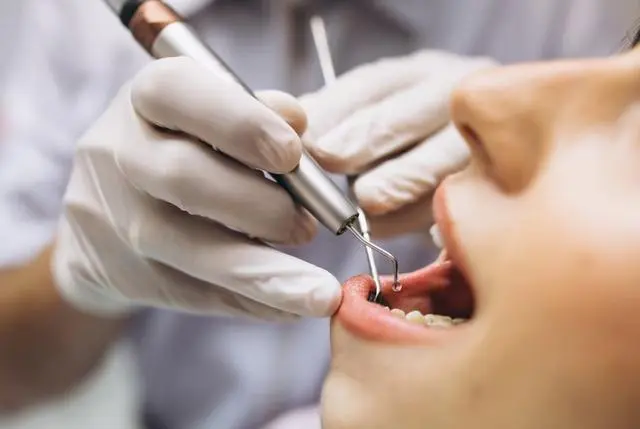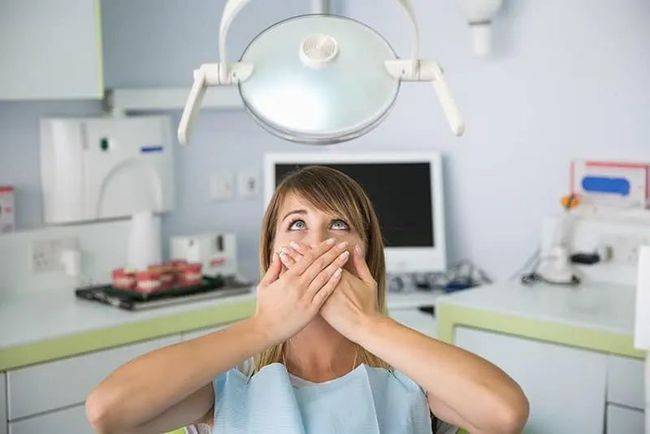Menopause is a natural biological process that signifies the end of a woman’s reproductive years. Most notably characterized by the cessation of menstruation for twelve consecutive months, menopause brings about a plethora of physiological changes that can impact a woman’s health in various aspects.
While symptoms such as hot flashes, night sweats, and mood swings often dominate discussions surrounding menopause, there exists another facet of this transitional phase that warrants significant attention—oral health.
The relationship between menopause and dental issues, exacerbated by hormonal changes, particularly a decline in estrogen levels, is a matter that not only merits awareness but also proactive management.
Dr. Thomas Sollecito, a leading authority in oral medicine at the University of Pennsylvania, emphasizes the importance of recognizing how hormonal fluctuations during menopause can influence dental health.
For many women, the onset of dental symptoms may begin earlier during the perimenopausal stage when estrogen production starts to wane.
It is imperative to understand that estrogen plays a crucial role in maintaining not only reproductive health but also the health of bone density, saliva production, and the integrity of gum tissue. Consequently, the reduction of this vital hormone can lead to an array of complications that manifest in the oral cavity.
One of the primary concerns associated with menopause is the reduction of saliva, which Dr. Sollecito describes as “one of the most important fluids in our body.”
Saliva serves multiple crucial functions, including the prevention of decay, aiding in digestion, and providing a natural defense against bacteria. As estrogen levels decline, saliva production may diminish, leading to a condition known as xerostomia, or dry mouth.
The implications of dry mouth are severe and multifaceted. Women experiencing this symptom may find themselves at greater risk for developing oral infections, experiencing soreness in the mouth, and suffering from an increased incidence of dental caries.
The absence of saliva further exacerbates these risks as it leads to a reduction in the antibacterial enzymes and minerals that are essential for maintaining oral health.
Dr. Sally Cram, a respected periodontist in Washington, D.C., highlights the dangers of a dry mouth, indicating that the proliferation of cavity-causing bacteria in such an environment significantly increases the likelihood of tooth decay and potential tooth loss.
In addition to the salivary gland dysfunction, menopausal women face the challenge of decreasing bone density, which adversely affects the jawbone that encases and supports the teeth.
Dr. Sollecito has articulated that a decline in bone density renders the bony socket that holds the teeth more vulnerable to loss.
Furthermore, as gums recede with hormonal fluctuations, certain tooth surfaces become exposed and unprotected by the enamel, heightening the susceptibility to decay.
The onset of periodontal disease during menopause poses an additional concern, marked by the accumulation of plaque and bacteria beneath the gumline, leading to inflammation and potential tooth loss.

Dr. Cram notes the telltale signs of periodontal disease—red, swollen gums that bleed easily and withdrawal from the teeth—which culminate in deeper crevices that are difficult to cleanse.
Another less commonly recognized condition that may arise during menopause is “burning mouth syndrome.” Dr. Hister-Cockrell from the University of Texas Health San Antonio describes this condition as manifesting a burning sensation that may extend not only to the tongue but also to the palate and lips, further complicating the overall oral health experience during menopause.
Given these potential challenges to oral health, it becomes crucial for women navigating this life stage to adopt a proactive approach to oral hygiene and overall health maintenance.
Experts advocate for good oral hygiene practices to mitigate the risks associated with menopause-related dental issues.
This includes maintaining a balanced diet rich in calcium and low in sugar, diligent brushing with fluoride toothpaste at least twice a day, and the regular use of dental floss. Dr. Cram recommends that women consider utilizing electric toothbrushes, which may provide a more effective cleaning than traditional manual brushes.
Regular consultations with dental professionals are paramount; women should not only inquire about their current oral health status but also seek guidance on potential adjustments to their dental care regimen to better accommodate the changes tied to menopause.
Furthermore, individuals are encouraged to discuss the frequency of dental visits with their oral health provider, as additional visits may be necessary during this transitional phase.
In-office fluoride treatments and prescription high-fluoride toothpaste can be instrumental in fortifying enamel and safeguarding against decay.
Addressing the often-overlooked issue of dry mouth is paramount for individuals seeking to maintain optimal oral health, particularly as they navigate the physiological changes associated with menopause.
Experts emphasize that one of the most effective strategies in this regard is to remain adequately hydrated throughout the day; as Cram aptly notes, “None of us really probably drink enough water,” highlighting a common oversight in daily self-care routines.
In addition to increasing water intake, individuals may find considerable relief from dry mouth symptoms through the utilization of over-the-counter remedies, such as sprays, lozenges, and mouth rinses specifically designed to alleviate this condition.
For those who experience more severe manifestations of dry mouth, consultation with a dental professional is advisable; Sollecito suggests that dentists may prescribe medications that stimulate saliva production, although it is important to remain cognizant of potential side effects associated with these treatments.

Similarly, prescription options exist for those suffering from burning mouth syndrome, further underscoring the necessity of professional guidance in managing these oral health challenges.
Ultimately, as Cram asserts, the key takeaway is that many oral conditions associated with menopause can be prevented through a combination of awareness, diligent oral hygiene practices at home, and regular dental check-ups, thus empowering individuals to take charge of their oral health during this significant life transition.
In conclusion, while hot flashes and other commonly recognized symptoms of menopause often dominate conversations about this life transition, it is crucial to recognize and address the profound implications that hormonal changes can have on oral health.
By increasing awareness of the interconnectedness of menopause and dental well-being, women can take proactive steps to preserve their oral health during this pivotal stage of life.
An informed approach, characterized by vigilant oral hygiene practices, balanced nutrition, and regular dental consultations, can significantly improve the quality of life for women experiencing menopause and diminish the risk of oral complications.
Ultimately, recognition of the importance of oral health in the context of menopause is not just beneficial; it is essential for holistic well-being.
